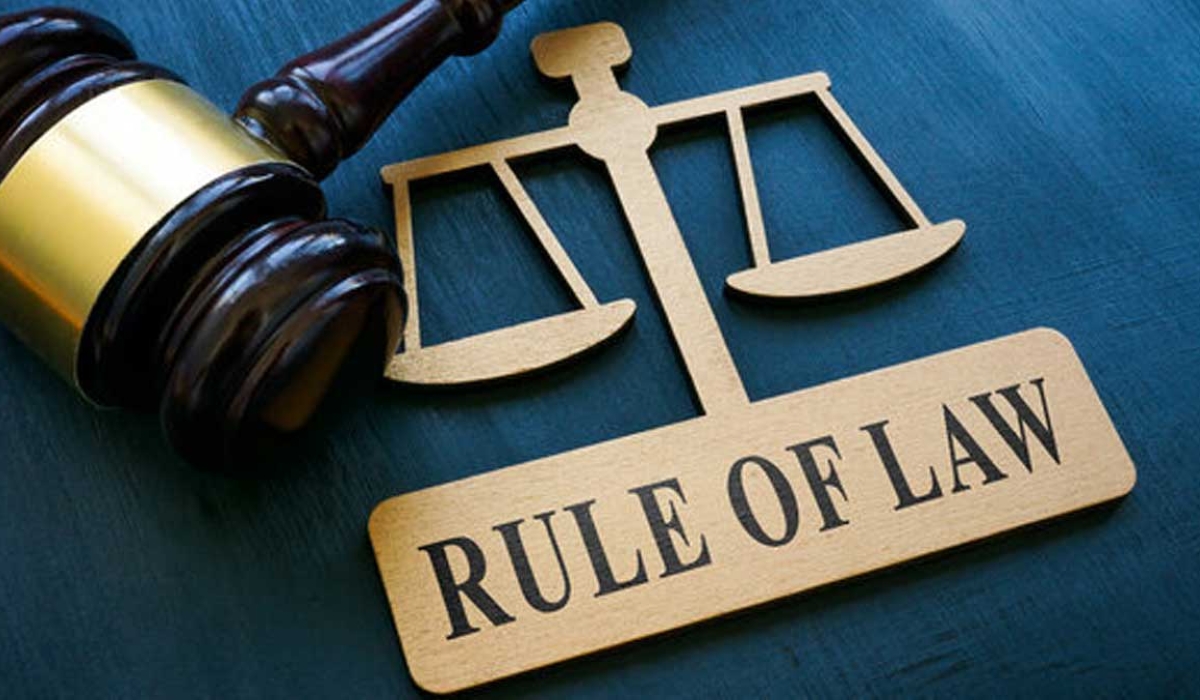Your cart is currently empty!

Rule of Law as the Path to Justice: Uganda Case Study
By Godfrey Kaweesa
The rule of law is a fundamental principle underpinning democratic societies, serving as a safeguard for individual rights and freedoms. In Uganda, as in many countries, the rule of law is not merely a legal doctrine but a cornerstone of social justice. It ensures that laws are applied equally, that justice is accessible to all citizens, and that governmental powers are exercised within established legal frameworks. This essay explores the interplay between the rule of law and justice in Uganda, illustrating its significance through real-life examples and evaluating the challenges faced in its implementation.
The Concept of Rule of Law
The rule of law denotes the supremacy of law over arbitrary power. It embodies the principles that laws govern a nation, not arbitrary decisions by individual government officials. Key elements of the rule of law include:
- Equality Before the Law: Every individual, regardless of status, is subject to the law.
- Accountability: Both government officials and citizens are accountable under the law.
- Fairness in the Application of Law: Laws must be applied impartially and without bias.
- Access to Justice: Citizens should have the opportunity to seek legal redress.
In Uganda, the Constitution of 1995 enshrined these principles, providing a robust framework for justice. Article 21 emphasizes equality before the law, and Article 28 guarantees the right to a fair hearing. However, the realization of these rights often encounters significant obstacles.
The Access to Justice Challenge
One of the most compelling examples of the rule of law’s impact on justice in Uganda is the ongoing struggle for access to justice for marginalized communities, particularly in rural areas. A significant portion of the Ugandan population remains uninformed about their legal rights and the mechanisms available to seek justice.
For instance, in 2015, the Uganda Law Society reported that over 80% of Ugandans did not have access to legal representation. Many people in rural areas rely on local leaders or traditional methods of conflict resolution rather than engaging with the formal judicial system. This gap highlights a crucial challenge: the need for legal awareness and education, which is essential for the rule of law to flourish.
The Land Dispute in Nakawa
A prominent case that exemplifies the intersection of the rule of law and justice is the land dispute in Nakawa. In 2018, a group of residents found themselves embroiled in a protracted legal battle against a powerful real estate developer who attempted to evict them from their homes. Despite having rightful ownership documents, the residents faced intimidation and threats.
The residents sought legal assistance from the Legal Aid Project, which provided pro bono services. The case was brought before the High Court, where the judge ruled in favour of the residents, emphasizing the importance of protecting property rights under the law. This ruling underscored the role of the judiciary in upholding the rule of law, demonstrating that justice can prevail even against powerful interests.
The Role of the Judiciary
The Ugandan judiciary plays a critical role in the enforcement of the rule of law. Judges and magistrates are tasked with interpreting laws and ensuring that justice is served impartially. The establishment of specialized courts, such as the Commercial Court and the Family Court, reflects efforts to enhance the efficiency of the judicial system. These courts provide targeted services, improving access to justice for specific segments of society.
The Commercial Court’s Impact
The establishment of the Commercial Court in 1996 significantly improved the resolution of commercial disputes in Uganda. Prior to its establishment, business disputes often lingered in the judicial system for years, deterring investment and economic growth. The Commercial Court introduced expedited procedures, resulting in faster judgments. For instance, a 2021 report indicated that the court resolved over 85% of cases within a year, showcasing how the rule of law facilitates economic development and stability.
Challenges to the Rule of Law in Uganda
Despite these positive strides, several challenges hinder the full realization of the rule of law in Uganda:
Corruption within the judicial system undermines public trust and the equitable application of the law. Reports from organizations like Transparency International indicate that bribery remains prevalent in legal processes, affecting outcomes and access to justice.
The judiciary in Uganda has faced accusations of political influence, particularly in high-profile cases. The dismissal of the Chief Justice in 2020, amidst allegations of bias, raised concerns about judicial independence. Such interference can discourage citizens from seeking justice, fearing that their cases may not be adjudicated fairly.
The judiciary often operates under strained financial and human resources. Many courts are underfunded, leading to delays in case resolution. The Judicial Service Commission has reported a significant backlog of cases, with thousands of cases pending judgment, which impedes timely justice delivery.
The rule of law is indeed the path to justice in Uganda, serving as the foundation for a fair and equitable society. While the country has made considerable progress in upholding the rule of law through constitutional provisions and judicial reforms, challenges remain that must be addressed. Combating corruption, ensuring judicial independence, and enhancing access to justice, particularly for marginalized communities, are essential for building a robust rule of law framework.
As Uganda continues to strive for justice, the commitment to uphold the rule of law must be unwavering. It is through the collective efforts of the judiciary, civil society, and government institutions that the vision of a just society, where the law protects all citizens equally, can be achieved.

Leave a Reply